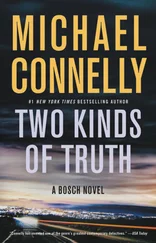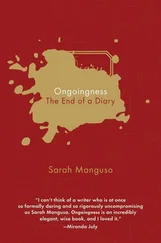Sarah Manguso
The Two Kinds of Decay
With sincere thanks to the MacDowell Colony and the Corporation of Yaddo for their gifts of time and space; to Catherine Corman, Lisa Selin Davis, Jennifer L. Knox, Julie Orringer, and Emily Senecal for their invaluable notes; to PJ Mark and Denise Oswald for their good faith.
With deepest gratitude to my doctors, nurses, parents, friends. To Adam, whose work sustains mine and whose love makes me brave. There were so many others. Thank you.
The disease has been in remission seven years. Now I can try to remember what happened. Not understand. Just remember.
For seven years I tried not to remember much because there was too much to remember, and I didn’t want to fall any further behind with the events of my life. I still don’t have a vegetable garden. I still haven’t been to France. I have gone to bed with enough people that they seem like actual people now, but while I was going to bed with them I thought I was catching up. I am sorry. I had lost what seemed like a lot of time.
I waited seven years to forget just enough — so that when I tried to remember, I could do it thoroughly. There are only a few things to remember now, and the lost things are absolutely, comfortingly gone.
I wrote down some things while the disease was happening — there are notes from one hospital stay and a few notes from the sickest years — but it isn’t much.
Sometimes I think the content of those days might not have finished happening. It might have begun then, in 1995, but I needed to save the rest of it until I was stronger.
The events that began in 1995 might keep happening to me as long as things can happen to me. Think of spacetime, through which heavenly bodies fly forever. They fly until they change into new forms, simpler forms, with ever fewer qualities and increasingly beautiful names.
There are names for things in spacetime that are nothing, for things that are less than nothing. White dwarfs, red giants, black holes, singularities.
But even then, in their less-than-nothing state, they keep happening.
I sang in a choir and took good care of my throat, and when I caught a head cold in February 1995, during my junior year of college, I took tea and herbal lozenges.
I liked that our British choirmaster didn’t accept a head cold as a valid excuse for missing a rehearsal.
We took our duties seriously, for in serving our duties to the Memorial Church we might achieve excellence, which many of us valued above the other virtues.
I sang second soprano and I wasn’t fearless, so I chose only a few solo auditions per year. I sang the second soprano solo in Gregorio Allegri’s “Miserere,” a setting of Psalms 50 and 51.
The piece was composed in the 1630s and has nine parts and is sung by three choirs standing in different parts of the church. When we sang it, the plainsong choir stood in the balcony, the solo choir stood behind the choir screen, and the rest of the choir stood before the congregation.
At some point in the seventeenth century, it became forbidden to transcribe the music. The piece was allowed to be performed only in the Sistine Chapel on Wednesday and Friday of Holy Week. Writing it down or performing it elsewhere was punishable by excommunication.
For more than a hundred years, legend has it, the piece was performed only at those two services.
In 1771, the fourteen-year-old Wolfgang Amadeus Mozart visited Allegri’s church. He had a notoriously accurate ear and was a quick transcriber. Later that day, he wrote the piece down entirely from memory, and that was the end of the secret “Miserere.”
I nursed a cold for weeks, trying to stay well enough that I could perform the piece in Cambridge, Massachusetts, on Sunday, March 5, 1995.
Our choirmaster gave us his notes on Tuesday. He said the solo choir had performed very well, especially the second soprano, for singing a part which is quite difficult to keep in tune and which holds the group together. I wrote that down.
I’d kept the virus hidden in my blood for weeks. The next day I let myself get sick and prepared to let the head cold run its course.
I still had the cold over spring break. I woke up on Sunday morning and my feet were asleep. I was at my parents’ house, and I’d stayed out late.
I walked down the hall to the bathroom and my feet stayed asleep.
When I splashed water on my face, I couldn’t catch my breath, couldn’t seem to hold it long enough. How long does it take to wash a face — two seconds?
My hands were tingling a little.
Still tingling, I finished packing, brought my bags downstairs, put them in the car, and sat in the passenger seat while my father drove the ten miles back to my college dorm.
The dorm’s elevator went to the even floors only, so I rode to the eighth floor and slid the bags down a flight to my room, G-73.
I phoned my parents the next night, and the one after that, and told them I’d come down with some kind of bug that was making me feel tired. I walked stiff-legged and slowly, and I was still nearly drowning every time I washed my face. My feet were numb, and my hands were getting numb, too.
I was concerned I’d caught a strange illness, but I was more concerned that I looked drunk. I was staggering around, even to and from breakfast, and I felt people looking at me and thinking it might be time for an intervention.
On my fourth day back at school, I fell down in the courtyard. Then I went upstairs and called my mother and asked her if she’d pick me up at school and take me to the hospital near their house, the hospital where I’d been born.
She drove me home first. She said my father would meet us there, would drive back early from his office on the South Shore, and the three of us would go to the hospital together.
That’s when I understood something might really be wrong with me.
I remember walking from the back door of the house to the driveway, with my mother clutching my right arm so I wouldn’t stumble on the brick path, and asking, What’s wrong with me?
My father said, very calmly, I don’t know, Sar, but at the hospital they will.
His calmness is the reason I didn’t cry until almost twelve hours later, once I was in Intensive Care, my blood already churning through a machine, when a nurse explained to me that if the strength of my diaphragm weakened five more pounds per square inch of air pressure, I’d be intubated through a hole in my neck.
I was brought upstairs from Emergency to Intensive Care and given a treatment called apheresis.
From the Greek aphairein, to take away.
In the hematological context, apheresis is the process of separating blood into its components (red cells, white cells, platelets, plasma), removing the component that’s sick, and reinfusing the rest of it, along with a suitable replacement for the sick part. The sick part of my blood was the plasma.
My nurse told me about a man she treated whose body manufactured too many platelets, enough to clot his blood right in his blood vessels. And so when his blood was separated, the extra platelets were removed and thrown away, and replaced with saline to make up the lost blood volume.
I thought his platelet-producing powers might have been made useful — if his extra platelets could flow out of him, through an apheresis centrifuge, and right into a hemophiliac.
But of course the man’s genes might have been diseased, or he might have been infected by a secret virus, and his platelets might have given someone his disease, or worse. So they were just collected in a bag and thrown away.
Читать дальше












